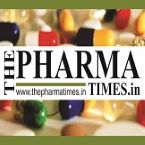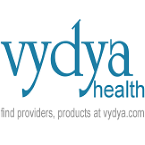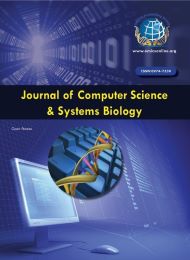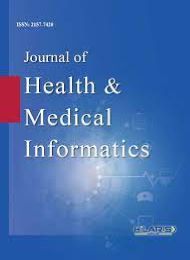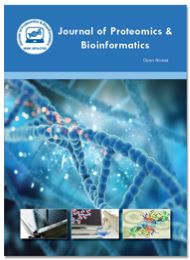Theme: "Utilizing Healthy data for better homogeneous vigilance"
eHealth Congress 2022
The “International Conference on eHealth Networking, Application and Services” is going to be held during March 14-15, 2024 Paris, France. eHealth Congress 2023 invites all researchers from all over the globe to participate in this Conference. Here it includes workshops, Keynote presentations, comprehensive talks, and Poster Presentations. eHealth Congress 2024 is the foremost event that brings together a distinctive and international mix of specialists, researchers, and chiefs both from the academic community and diligence across the globe to trade their perception.
The theory of the conference is “Global Collaboration in Ehealth : Sharing best practices and insights”. It’s our greatest amusement to welcome you to the official website of the International Conference on eHealth Networking, Application, and Services. This conference mainly focuses on topics such as Health Care Technologies, Medical Informatics, Biomedical Informatics, Clinical Informatics, Health System Informatics, Electronic Medical Records, Public Health, Aging and eHealth, eHealth Diagnostics, eHealth Clinical Applications, Digital health, Personalized eHealth, Preventive eHealth Systems, Recent development in Digital Health Care Services, telemedicine, M health, Big Data.
Benefits of Participation
Supremacy of Participating at our Conference:
-
The ascendancy of the Speaker and abstract pages are evolved on your profile in Google under your name will be viewable worldwide.
-
Our vigorous online advertising attracts 30000+ users and 50000+ views to our Abstracts Library, which processions our conference to researchers and speakers.
-
Meet with hundreds of like-minded experts who are pioneers in eHealth Networking, Application, and Services and share ideas.
-
Both Conference participants will have a different purpose to capture in one-to-one meetings with significant speakers and renowned keynote speakers.
-
A rare opportunity to listen to what the world's experts are learning from the world's most prominent eHealth researchers at our Keynote sessions.to listen to what the world's experts are learning from the world's most prominent eHealth researchers at our Keynote sessions.
-
You will gain experience and expertise in strategic gift planning that is worth its weight golf, forming a magnificent array of admired professionals. eHealth Networking, Application, and Services exhaustive Conference schedule.
-
Best Poster Award nominations.
-
Award for Outstanding Young Researcher.
-
Group Registration Advantages.
Advantages of Participation for Speaker:
-
Worldwide appreciation of the profile of Researchers.
-
Acquire credits for professional development.
-
Survey the latest cutting-edge inspection.
-
Initiate long-term social and networking connections.
-
Significance to advertising one page in the absolution of abstract books and flyers that inherently gives your study profile 1 million views and adds significant value.
-
Learn a conversion beyond your area of interest to learn more about new projects and studies away from your core subject of eHealth Networking, Application, and Services.
- We have exceptional networking, learning, and fun integration into a single bundle.
Benefits of Participation for Delegate:
-
Professional Evolution-Improve perception and knowledge.
-
Attendance at conference holds up regenerate and stimulates delegates.
-
Your participation in our conference will help with a new strategy and ideology that can be used to broaden the consequence of businesses or industries.
- Opportunities for eHealth Networking, Application and Services researchers and experts in the same field to meet and exchange new ideas through conferences.
Session 01: Health Care Technologies
Healthcare technology is any technology, embracing medical devices, IT systems, algorithms, artificial intelligence (AI), cloud, and block chain, depict to support healthcare organizations.
- The electronic health record
- Telemedicine/telehealth
- Portal technology
- Remote monitoring tools
- Sensors and wearable technology
- Wireless communication
eHealth Clinical Applications | Medical Informatics | Biomedical Informatics
Session 02: Medical Informatics
It is determined as the systematic application of information, computer science, and technology to public health practice, research, and learning. With the prompt pace of information technology development, new applications of public health informatics come up with more timely and specific data for disease surveillance.
- Information Technology
- Artificial Intelligence
- Medical Record
- Electronic Medical Record
- Bioinformatics
Biomedical Informatics | eHealth Diagnostics | Public Health
Session 03: Biomedical Informatics
Biomedical informatics is a part of health informatics that operates data to help clinicians, researchers and scientists improve human health and dispense healthcare.
- Genomics
- Metagenomics
- Structural analysis
- Molecular modeling
- Pathway analysis
Nursing informatics | Clinical Informatics | Health System Informatics
Session 04: Clinical Informatics
Clinical Informatics is the integrative study of data, information, and computing technology (ICT) and communication with respect to human health conditions; plus understanding, developing, integrating, and applying ICT innovations to advance comprehension of human health and the conveyance of health and social care.
- Evaluate the needs of healthcare professionals and patients.
- Appraise and clarify clinical processes.
- Engage in the customization, development, and management of clinical information systems.
Electronic Medical Records | Telemedicine | Big Data
Session 05: Health System Informatics
Health Informatics (HI) is a relatively new, synthesizing area in the healthcare industry that uses information technology to arrange and examine health records to refine healthcare outcomes. It is also called Health Information Systems.
- Pharmacy informatics.
- Public health informatics.
Information Technology | Medical Informatics Engineering | Neuroinformatics
Session 06: Electronic Medical Records
An electronic group of medical data about a person is saved on a computer. An electronic medical record encompasses data about a patient’s health records, such as diagnoses, medicines, tests, allergies, immunizations, and treatment plans. Electronic medical records can be seen by all healthcare contributors who are taking care of a patient and can be used by them to help make counsels about the patient’s care and also called EHR.
- Reduces Risk of Malpractice.
- Helps to Maintain Communication amongst Healthcare Personnel.
- Ensure You Get Reimbursed.
- Records PQRS Measures and Hospital Quality
Aging and eHealth | eHealth Clinical Applications | eHealth Networking
Session 07: Public Health
Public health is defined as the science of securing safety and upgrading the health of communities through education, policy-making, and exploration for disease and injury prevention. Diagnose and investigate health complications and health risks in the community. Inform, prepare, and authorize people about health conditions. Assembling community partnerships and action to recognize and solve health problems. Evolve policies and plans that support individual and community health efforts.
- Food safety
- Nutrition, physical activity, and obesity
- Prescription drug overdose
- Alcohol-related harms
Clinical Informatics | Health System Informatics | Digital health
Session 08: Aging and eHealth
Usual conditions in older age embrace hearing loss, cataracts and refractive errors, back and neck pain and osteoarthritis, chronic obstructive pulmonary disease, diabetes, depression and dementia. It can help you sleep better, restoring your appetite and may lower your risk of heart disease, dementia and falls. It also helps out to refine and conserve your fitness, strength and balance. It is main to recollect that everyone's fitness levels and physical abilities are different.
Digital Therapeutics | Genomics | Information Technology
Session 09: eHealth Diagnostics
eHealth is described as “the worthwhile and safe use of information communication technologies (ICT) in hold up of health and health-related fields, as well as health-care services, health surveillance, health literature, and health education, knowledge, and research”. eHealth is the use of materialized information and communication technology, especially the Internet, to upgrade or empower health and health care.
- Health Equity
- Improving Care for Older Adults
- Addressing the Opiod Epidemic
- Workplace Safety and Well-being
Telemedicine | Personalized EHealth | Medical Informatics Services
Session 10: Digital health
Digital health, or digital healthcare, is a large, interdisciplinary concept that incorporates concepts from an intersection in the middle of technology and healthcare. Digital health appeals digital modification to the healthcare field, integrate software, hardware and services. The large scope of digital health appends classification such as mobile health (mHealth), health information technology (IT), wearable devices, telehealth and telemedicine, and personalized medicine.
Structural Analysis | Remote Monitoring Tools | Portal Technology
Session 11: Personalized eHealth
Personalized medicine, also mentioned as accuracy medicine, is a novel medical model aimed at authorizing pharma companies and healthcare contributors to mark critical regulatory and business requirements while providing a personalized care experience to patients. This model uses advanced analytics and digital technologies such as AI (Artificial Intelligence), Machine Learning (ML), IoT (Internet of Things), and blockchain to control patient treatment lifecycle at the individual level – from patient’s accession and arranging to their post clinical treatments, which in turn assists to curb patient treatment lifecycle. These solutions hold up seamless integration with managing business processes/systems that most hospitals use.
- Remote sensing and wearable’s
- Telemedicine and health information
- Digitized health record platforms
- Bioinformatics tools
Digital Health Care Services | Rural Health Telemedicine | Nursing Informatics
Session 12: Telemedicine
Telemedicine, also mentioned as telehealth or e-medicine, is the distant delivery of healthcare favours, as well as exams and consultations, above the telecommunications fundament. Telemedicine permits healthcare providers to estimate, diagnose and treat patients without the requirement for an in-person visit.
- Store-and-Forward Telemedicine
- Remote Patient Monitoring
- Real-time telemedicine
Telemedicine and Services | Telehealth and Medicine Today | Telemedicine and Networking
Session 13: M health
For the causes of the synopsis, the Global Observatory for eHealth (GOe) determined mHealth or mobile health as medical and public health practice hold up by mobile devices, such as mobile phones, patient checking devices, and other wireless gadgets. There might be various privacy and encryption matters when it comes to mHealth. In such cases where there is the safety and data seclusion is not build up, the personal information can be leaked and shared to third force.
- Point-of-Care Diagnostics
- Medication Management
- Medical Imaging
Preventive eHealth Systems | Digital health | Biostatistics
Session 14: Neuroinformatics
Neuroinformatics is a research field distressed with the organization of neuroscience data by the appeal of computational copies and analytical tools. These areas of analysis are major for the integration and analysis of increasingly abundant, high-dimensional, and delightful experimental data. Neuroinformaticians supply computational tools, archetypical, and create accordant databases for clinicians and research scientists. Neuroscience is a diverse field, consisting of many and various electives. In order for our comprehension of the brain to continue to deepen, it is necessary that these provinces are able to share data and findings in a consequential way; Neuroinformaticians ease this. it stands at the convergence of neuroscience and information science.
- Models of neural computation
- Artificial neural networks
- Brain-computer interface
- Data analysis and knowledge organization
Medical Informatics | Health Care | Biomedical Informatics
Session 15: Big Data
Big data is a term that reports large, difficult -to-manage volumes of data – both structured and unstructured – that overwhelm businesses on a routine basis. It can be examine for insights that better decisions and give confidence for building strategic business moves.
- Structured Data.
- Unstructured Data.
- Semi-Structured Data
To share your views and research, please click here to register for the Conference.
To Collaborate Scientific Professionals around the World
| Conference Date | February 06-07, 2022 | ||
| Sponsors & Exhibitors |
|
||
| Speaker Opportunity Closed | |||
| Poster Opportunity Closed | Click Here to View | ||
Useful Links
Special Issues
All accepted abstracts will be published in respective Our International Journals.
- Journal of Computer Science & Systems Biology
- Journal of Health & Medical Informatics
- Journal of Proteomics & Bioinformatics
Abstracts will be provided with Digital Object Identifier by













